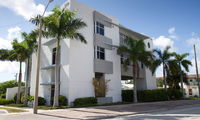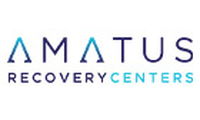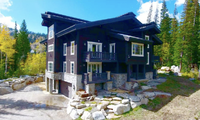Non-12 Step Rehab

There are many pathways to recover from addiction. The 12 step program widely popularized by Alcoholics Anonymous (AA) and Narcotics Anonymous (NA) is beneficial to many, but often promotes or recommends spirituality or the concept of a “Higher Power” as a means to recovery. This may not be for everyone—and that's okay.
Non-12 step rehab centers do not follow the 12 steps as a primary treatment method. Instead, they promote concepts such as reliance on self-empowerment, cognitive-behavioral strategies or a combination of treatment approaches. Among these treatment centers, programs will vary in their treatment offerings, curriculums and types of therapies used.
Non-12 Step Treatment Methods
Non-12 step recovery programs will often promote changing thinking patterns or behaviors and may even adopt a more medical or psychological approach to recovery. Within non-12 step rehab centers, there may be varying treatment offerings, curriculums and types of therapies that are used.
Here are the different treatment models that may be a part of a non-12 step rehab program:
Cognitive Behavior Therapy (CBT)
In CBT therapy, clients work to identify and correct problematic behaviors and thought patterns by developing coping skills and correcting faulty thinking patterns – especially for situations that would lead to triggers or cravings to use drugs or alcohol.
Dialectical Behavioral Therapy (DBT)
DBT is another form of CBT therapy that emphasizes a blend of psychotherapy and group skills classes to help develop strategies for regulating emotions, tolerating distress and increasing interpersonal satisfaction and effectiveness.
Contingency Management
This type of treatment uses positive reinforcement like rewards or privileges to help people stay sober, participate in counseling, attend group therapy, take prescriptions appropriately or attend sober support groups.
Motivational Interviewing
In motivational interviewing, also called motivational enhancement therapy, counselors will use strategies that help clients harness their internal motivations to change their behavior, like stopping risky behaviors that lead to relapse or continued use of substances.
Family Therapy
Family therapy is an important facet of any program, but especially so for adolescents. Alcohol and drug use impacts the entire family system, so involving family members in a treatment program can help people examine the family dynamics and interactions that lead them to use drugs and alcohol.
Holistic or Alternative Therapies
There are a number of Eastern medicine practices that may be used in a treatment setting, like yoga, meditation and acupuncture. These therapies may supplement group therapy and individual counseling, but may be emphasized more or less in different programs.
Non-12 Step Alcohol Rehab Centers
Treatment centers for alcohol addiction help clients find recovery and reprieve from the devastating effects of alcoholism. In a non-12 step rehab facility, programs will range from CBT groups to motivational interviewing and can be beneficial at all stages of alcohol addiction treatment including detox, inpatient rehab, or outpatient rehab. These programs help clients explore topics like thinking patterns related to alcohol use, or use a blend of different therapies to help a person recover.
Participation in a non-12 step group like SMART Recovery may be recommended or suggested.
Non-12 Step Drug Rehab Centers
Treatment centers for drug addiction can help people get sober from drug use while promoting and enhancing a recovery lifestyle. In a non-12 step rehab center for drug addiction, programs will often promote various pathways to recovery that can include a blend of CBT, holistic therapies, motivational interviewing and more. Treatment components can include individual counseling, psychotherapy and group therapy to help clients build coping skills, examine their triggers and develop a relapse prevention plan. Similar to alcohol addiction, non-12 step groups like SMART Recovery may be recommended.
Non-12 Step Dual Diagnosis Rehab Centers
If you have a co-occurring disorder or are looking to attend a dual diagnosis treatment center, it's important to select a treatment facility that offers psychotherapy, mental health services or specialized mental health groups like CBT or DBT groups. In a dual diagnosis facility, the importance of receiving help for both mental health diagnosis and substance use disorder will be emphasized. Non-12 step dual diagnosis programs help individuals form new thinking patterns, reduce anxiety, address depression and develop holistic strategies that reduce relapse potential while establishing a routine for mental health and recovery wellness.
How to Look for a Non-12 Step Rehab Center
Options for treating substance use disorder can vary from community to community. In order to choose the non-12 step rehab center that’s right for you, make sure you do some research. Most treatment programs will disclose on their websites if they adopt a 12 step philosophy or not. Then check out a few treatment centers in your area to learn more about the different treatment philosophies used and whether or not the approach seems appealing or helpful.
At the end of the day, the purpose of drug and alcohol treatment centers—12 step or non-12 step—are the same: to help you get sober and achieve a recovery lifestyle in a way that works for you. Non-12 step substance abuse treatment centers can be beneficial for those who prefer 12-step alternatives as their pathway to recovery.









